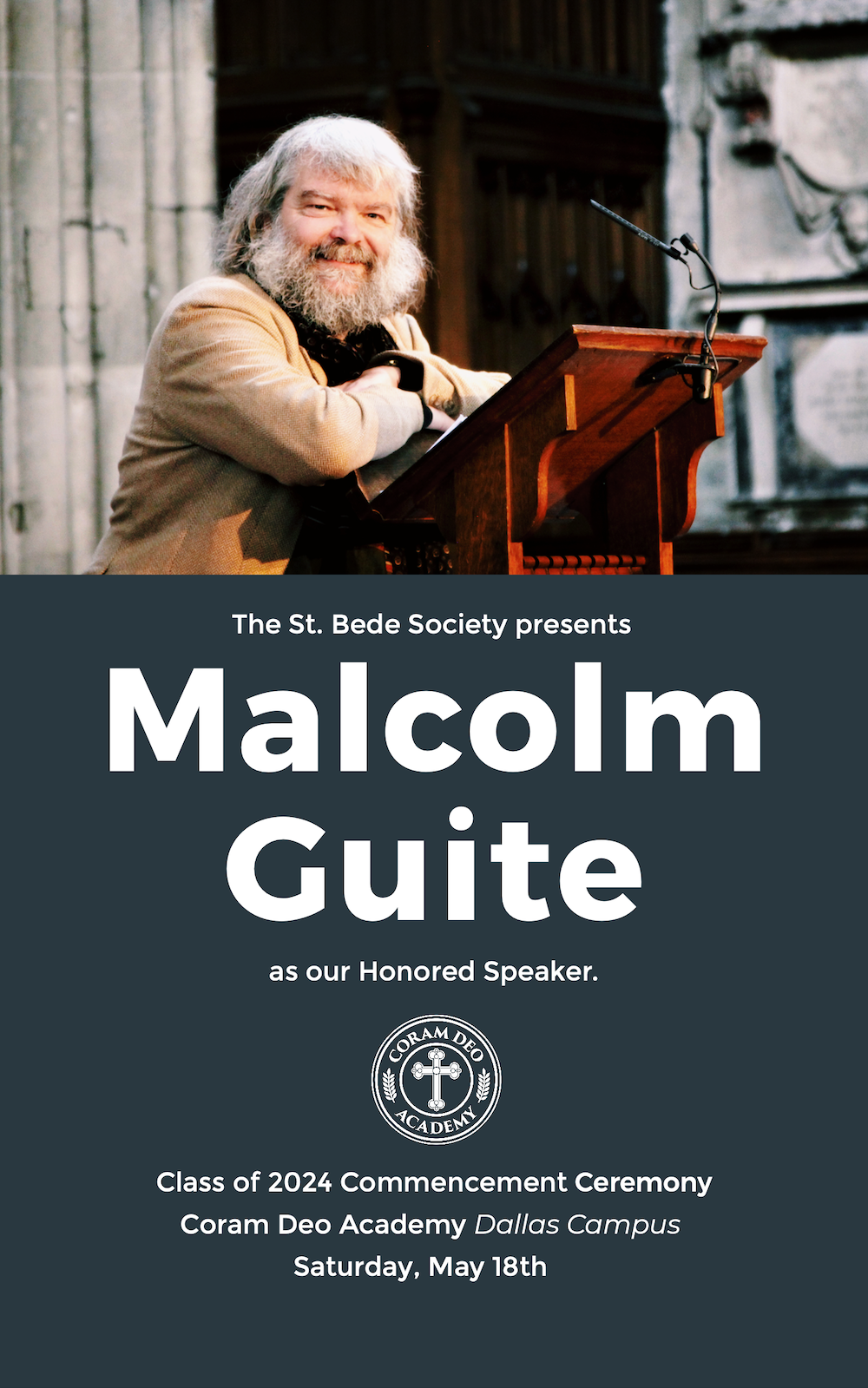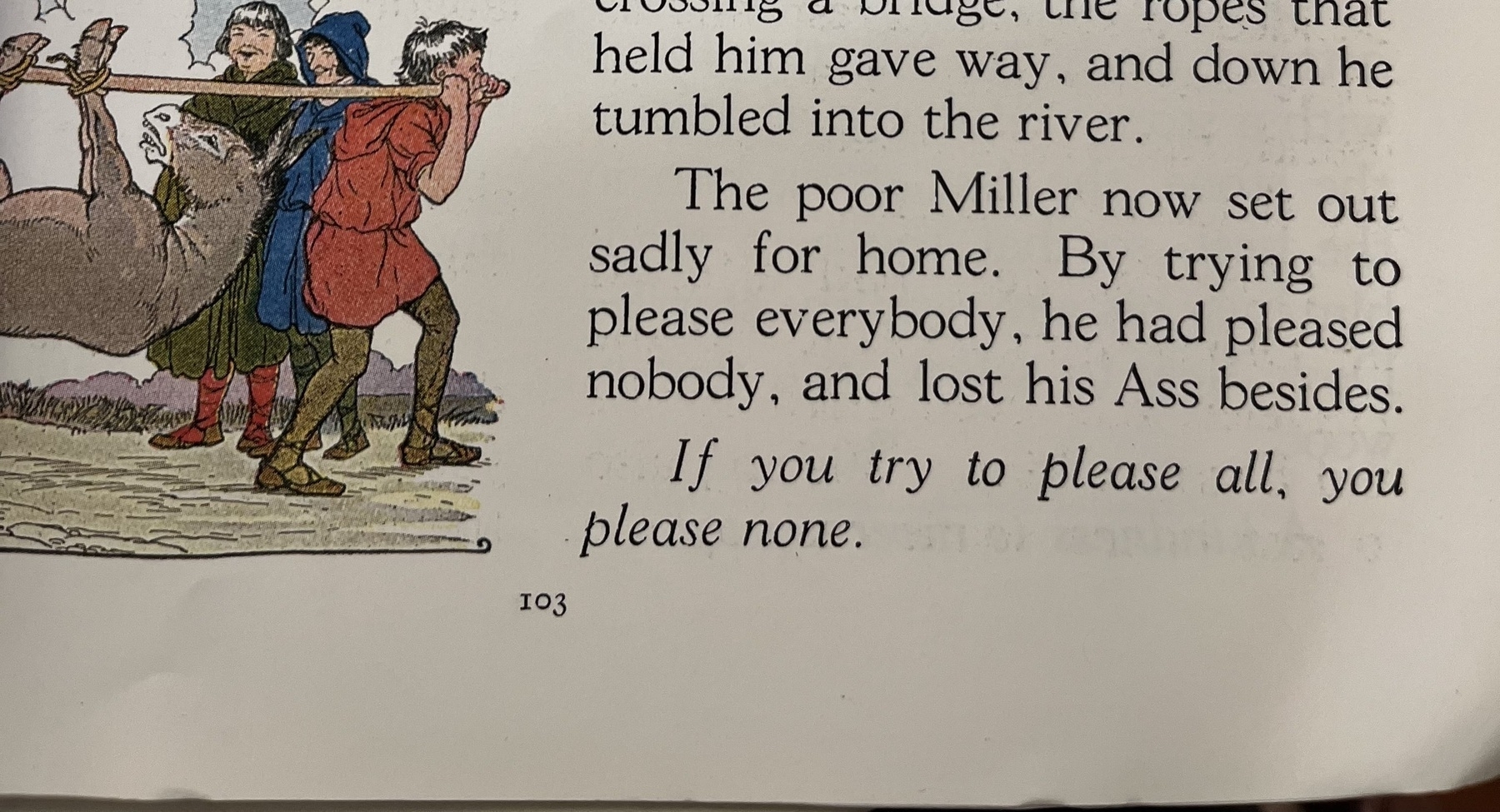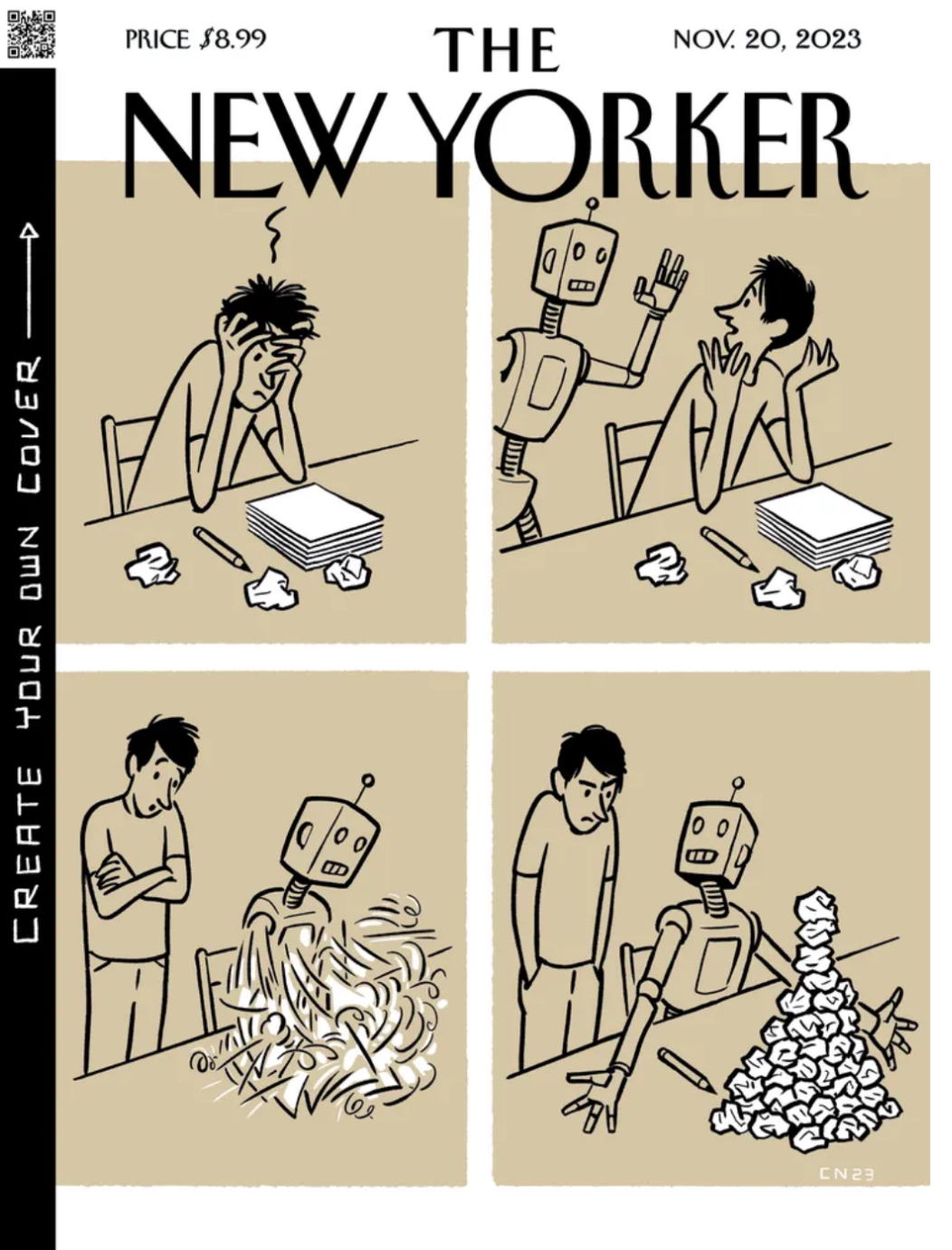The Altar Rail
The altar rail is a microcosm of a universe held together by sacrament. Imposed ashes speak louder than the words. The priest says “Remember thou art dust." But in their eyes, and his, it sounds more like “This year, or perhaps next, I will commend your ashes, not these." “The body of Christ” is heard in ten thousand ways, most of them unspoken. The altar rails is the cosmos in micro.
Steps towards a more analog 2024
2024 will mark the 40th anniversary of the Apple Macintosh. To properly mark the occasion, and in a nod to Steve Jobs—who never wanted our devices to become part of who we are—I am taking some intentional steps towards analoging my life. I will do this in two primary ways, one aesthetic, and one ascetic. For the former, I will work towards making analog things more intellectually and physically attractive, when reasonable.
Merry Christmas from the newest member of our household! Happy to have a dog in the home again.

May He, who by His Incarnation gathered into one things earthly and heavenly, fill you with the fulness of inward peace and goodwill, and make you partakers of the Divine Nature; and the blessing of God almighty, + the Father, the Son and the Holy Spirit, be upon you and remain with you always. Amen.
Pleased to have Malcolm Guite as our Inaugural Honored Speaker at Coram Deo Academy Dallas!

Fables doing what fables do: remind us of something we need to hear, in a way that allows us to actually hear it.

Smartphones and stoplights
Smartphone and social media addiction is a real plague affecting younger generations. To deny this in any way is to be woefully and intentionally ignorant of reality. At the same time, part of the reason this is a problem in the first place is that the exact same is true of older generations. See Sherry Turkle’s excellent book Reclaiming Conversation for hard data on this front. An illustration from my commute this morning: traffic was held up at a left-turn light because the lady in front of me put on her readers to check her phone.
Audere est facare, indeed!
Or, as Pep himself said about Ange: “He makes football a better place.”

Councils, Creeds, Confessions ... and the Beautiful Game
To put a bow on the past few weeks we have spent discussing Councils, Creeds, Confessions, and Catechisms, my Senior Theology class has an exciting task ahead of us this week: Use soccer as a running analogy for the Christian Church, and articulate where each of these things fit. For example, perhaps: Councils function as governing bodies with varying levels of authority, whether official or unofficial. (FA, FIFA, YMCA, etc.
Putting up Christmas decorations is a lot more exciting when your eight-year-old loves climbing on the roof to help!

These are the people who are building the thing they don’t understand in hopes that it will outperform humanity in “anything and everything.”
Everything is fine.
The New Yorker cover for the week of November 20.

While it was 0-0 until the 83’, the fact that the USMNT vs T&T match ended in a 3-0 victory helped make the trip to Austin and back worth it on a weeknight!

Google search results return a “featured snippet” that was generated by AI, and the results are what (many of us) might expect.
Google search: “What is an African country beginning with K?”
Snippet answer: “While there are 54 recognized countries in Africa, none of them begin with the letter ‘K.’ The closest is Kenya, which starts with a ‘K’ sound, but is actually spelled with a ‘K’ sound. It’s always interesting to learn new trivia facts like this.”
Keep the faculty of effort alive in you by a little gratuitous exercise every day. That is, be systematically ascetic or heroic in little unnecessary points, do every day or two something for no other reason than that you would rather not do it, so that when the hour of dire need draws nigh, it may find you not unnerved and untrained to stand the test.
William James on training the intellectual virtues.
I picked up digital—and hyperlinked—versions of the Syntopicon and the Great Books of the Western World to help students find great Classical through Enlightenment sources for their Capstone papers.
Both are gifts to the English-speaking world, but the Syntopicon is really something special.
If you speak longer than you intended to—or longer than the occasion called for—you have not prepared too much. You have not prepared enough.
MLB commentators continue to dismiss the intentionality of Garcia being hit by a pitch in Game 5.
“It couldn’t be on purpose; putting a second man on base doesn’t make sense.”
They are completely ignoring the fact that baseball players are humans, not robots. We are not purely rational beings.
Not every Christian institution is rocked by scandal, and there are many Christian colleges that are healthy and vibrant, led by men and women of integrity. Yet as we witness systemic misconduct unfold at institution after institution after institution, often without any real accountability, we can understand that many members of the church have gotten Paul’s equation exactly backward. They are remarkably tolerant of even the most wayward, dishonest and cruel individuals and institutions in American Christianity. At the same time, they approach those outside with a degree of anger and ferocity that’s profoundly contributing to American polarization. It’s also perpetuating the corruption of the church.
Under this moral construct, internal critique is perceived as a threat, a way of weakening American evangelicalism. It’s seen as contributing to external hostility and possibly even the rapid secularization of American life that’s now underway. But Paul would scoff at such a notion. One of the church’s greatest apostles didn’t hold back from critiquing a church that faced far greater cultural or political headwinds — including brutal and deadly persecution at the hands of the Roman state — than the average evangelical can possibly imagine.
Why? Because he realized the health of the church wasn’t up to the state, nor was it dependent on the church’s nonbelieving neighbors. Liberty University is consequential not just because it’s an academic superpower in Christian America, but also because it’s a symbol of a key reality of evangelical life — we have met the enemy of American Christianity, and it is us.